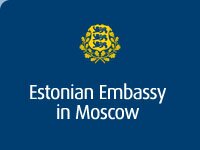Foreign Minister Urmas Paet: International Criminal Court Needs Stronger Political Support
01.10.2012
Nr 341-E
At a meeting focusing on issues related to the International Criminal Court (ICC) in New York today, Foreign Minister Urmas Paet said that regardless of the ICC’s position growing stronger over the past few years, the court still lacks sufficient political support. “The need for high-level political support on the ministerial level is most evident in those cases when a country does not co-operate with the court,” Paet noted. “Like, for example, the case in Libya, where ICC workers were detained by that state,” he added.
Paet confirmed that Estonia is a firm supporter of the work of the ICC. “I also brought up the topic of stronger political support for the ICC at the recent meeting of the Nordic and Baltic foreign ministers,” said Paet. “In addition, Estonian Ambassador Tiina Intelmann has been named the president of the ICC Assembly of States Parties for the next three years.”
Foreign Minister Paet also mentioned the importance of aiding the victims of crimes against humanity. “Two weeks ago we organised a high-level ICC conference in Tallinn in co-operation with the Finnish foreign minister and the president of the ICC Assembly of States Parties; the conference focused on helping victims and compensating them for damages done,” Paet stated. “Similar shows of political support for the work of the court are very important, which is why we appreciate it when these topics are addressed on a ministerial level.” Paet did add, however, that various initiatives should be co-ordinated with the president of the Assembly of States Parties.
Background information:
Estonia has been a supporter of the ICC since its inception. On 12 December 2011 the ICC Assembly of States Parties in New York elected Estonian representative Tiina Intelmann as the president of the assembly. For the next three years Tiina Intelmann will lead the work of the ICC member states as a special representative of the ICC and mediate negotiations related to the court’s functioning.
Genocide, crimes against humanity, and war crimes all fall under the jurisdiction of the ICC. The ICC begins proceedings when domestic courts are not able to or do not wish to put the perpetrators of these crimes on trial. The court may also begin proceedings at the request of the UN Security Council. In accordance with the decision made at the Review Conference of the Rome Statute held last year in Uganda, as of 2017 the court will also be able to prosecute crimes of aggression. The International Criminal Court is based in The Hague. The court’s 18 judges and prosecutors are selected by the member states.
Today 121 countries have joined the Rome Statute that is the basis for the ICC, including all of South America, most of Europe, and almost half of Africa.
 
|

